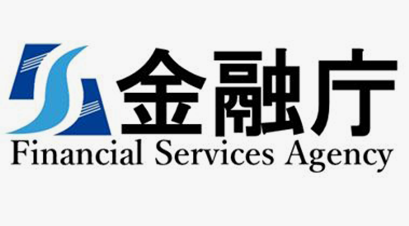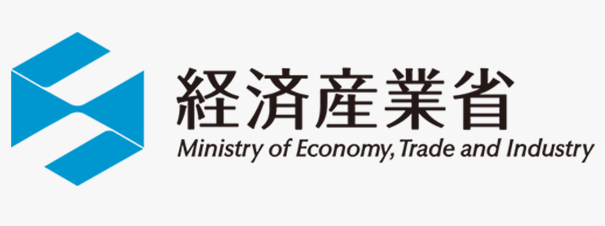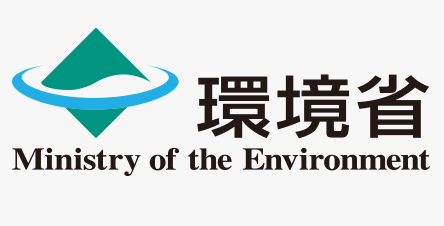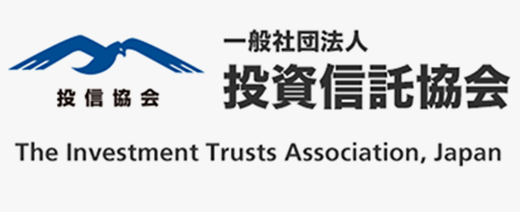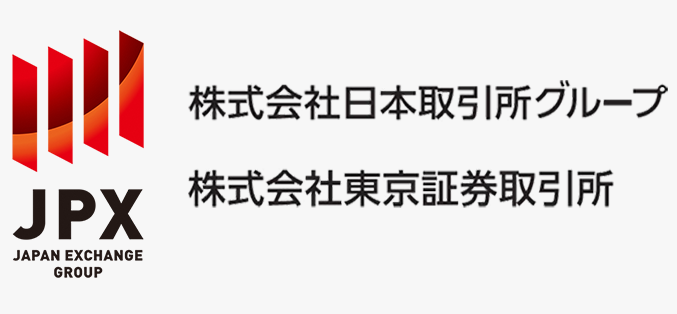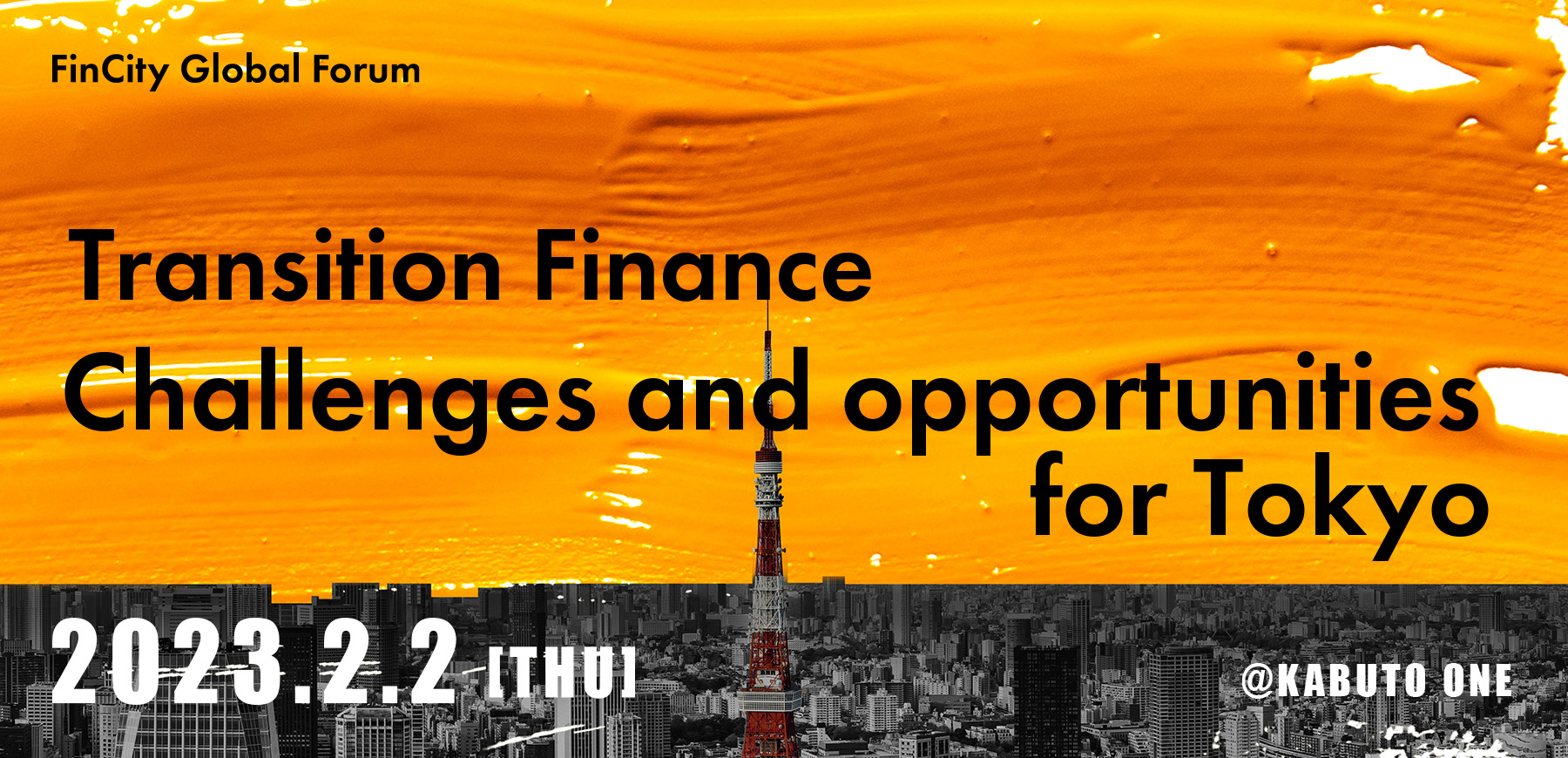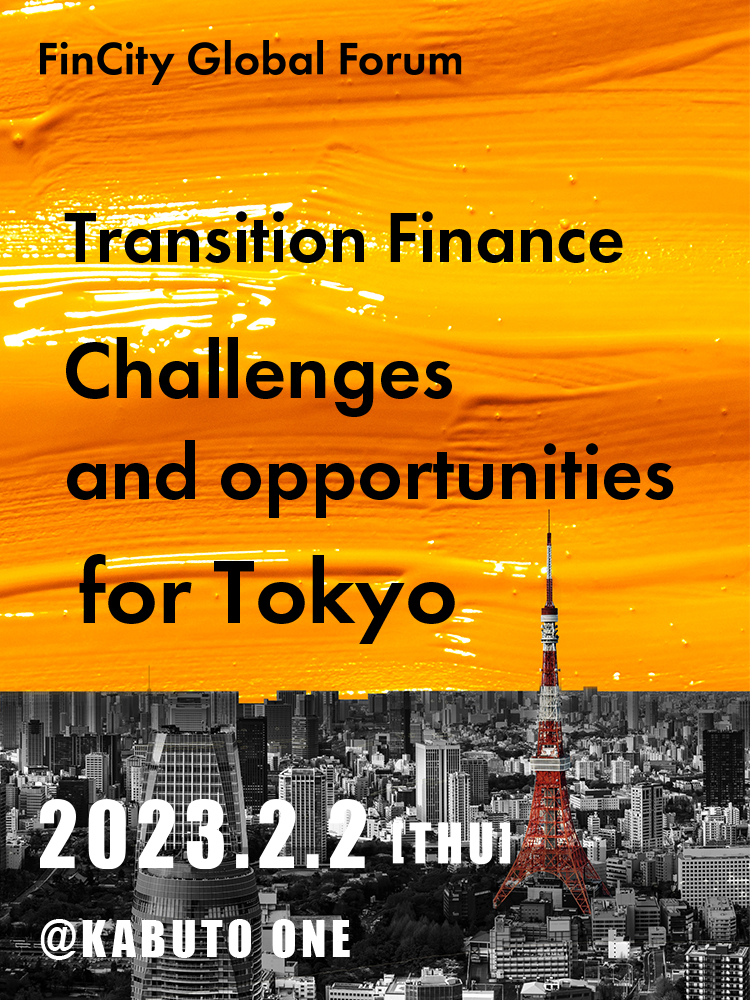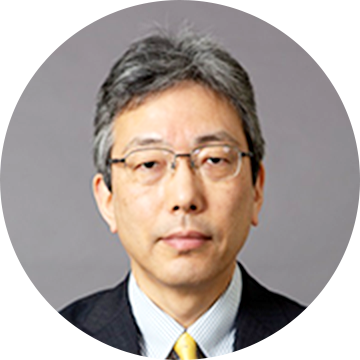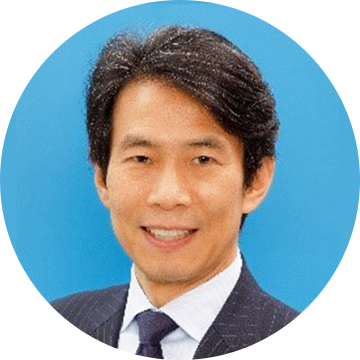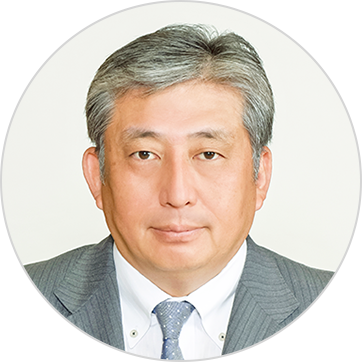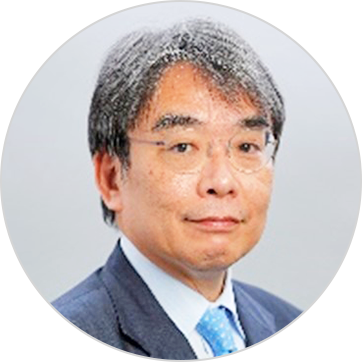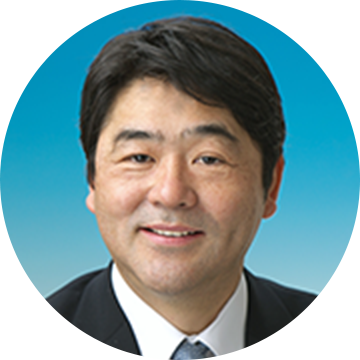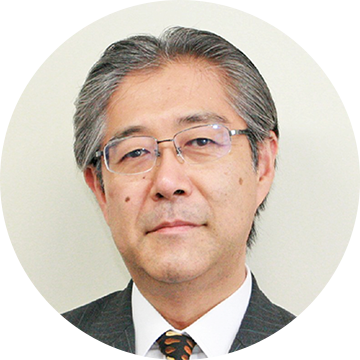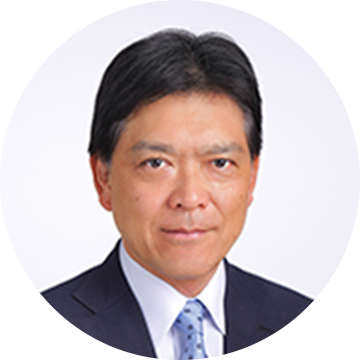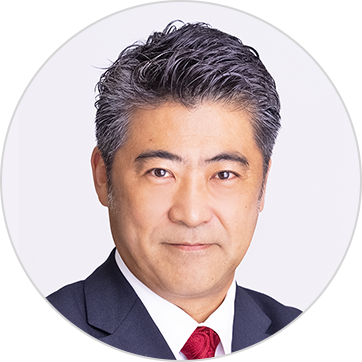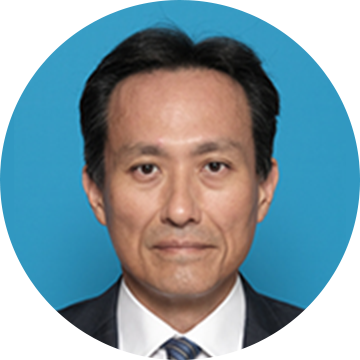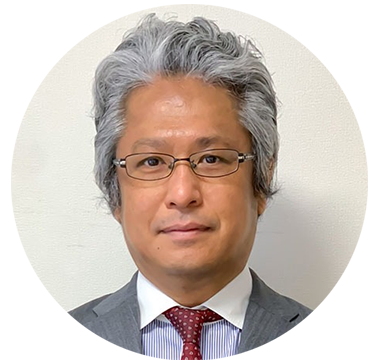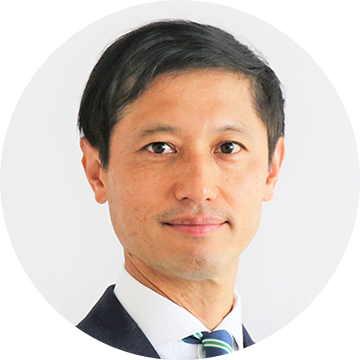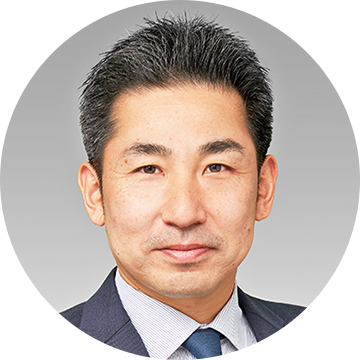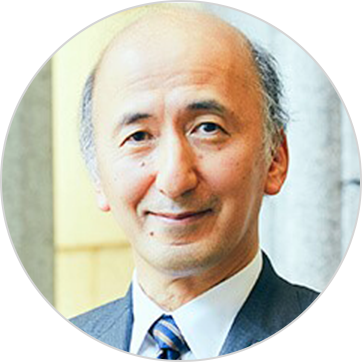Expanding transition finance is essential for realizing a decarbonized society. But the environment surrounding the world is increasingly severe due to issues such as Russia's invasion of Ukraine and supply constraints, making a strategic review of the climate change response very urgent. Tokyo needs to play a role as an international financial center in Asia and is also expected to serve as a bridge between Asia and the West, including the United States, in terms of transition finance while trying to obtain understanding from Asian nations. Amid the growing importance of transition finance, FinCity Global Forum brought together policy and business leaders from Japan and abroad, who discussed outlooks and challenges for realizing a carbon-free society from various perspectives.
OVERVIEW
Overview
- Organizer
- FinCity.Tokyo
This event was held as part of a financial promotion project based on the Tokyo Metropolitan Government's "Global Financial City: Tokyo" Vision. - Date & Time
- Thursday, February 2, 2023, 13:30- 17:50 [JST]
*A networking event was held at the venue after the forum (no online participation). - Format
-
- Hybrid event (on-site/online participation)
- Simultaneous interpretation in Japanese and English
- Fee
- Free of charge for both on-site and online participation (pre-registration required)
- Venue
- KABUTO ONE Hall & Conference (7-1 Nihonbashi Kabuto-cho, Chuo-ku, Tokyo)
- Access
- Venue's website https://kabutoone.tokyo/#access

- Contact information
- Seminar Secretariat, Financial Market Information Div, Jiji Press
mk-seminar@jiji.co.jp
Program
OPENING REMARKS13:30-13:35
POINTS
At the opening of the forum, Tokyo Governor Yuriko Koike delivered a speech. She said: "As the world faces huge crises such as the climate crisis and the energy crisis, the importance of transition finance for a shift to decarbonization is once again attracting attention. I hope that this forum will help spread transition finance further and lead to the realization of a decarbonized society."
PANEL DISCUSSION①13:35-14:25
For Tokyo to become a hub of Asia
POINTS
- Drastic Change in Lifestyle Urgent
- Puzzlement over Gap in Mindset between Japan and EU
- Japan Stands Out thanks to Govt Support
- Various Ideas, Such as Recurrent Education, Presented to Revitalize Tokyo
Read the abstract
Four panelists discussed the current state and other issues regarding transition finance based on the situation in each country.
Drastic Change in Lifestyle Urgent
Hiroshi Ono, Japanese vice minister of the environment for global environmental affairs, said: "Drastic changes, including in lifestyle, and a large amount of funds are necessary for achieving Japan's target of reducing its greenhouse gas emissions by 46 percent (in fiscal 2030 from the level in fiscal 2013). Financial and policy support is the key, and the public and private sectors are working together, with their efforts including the establishment of related road maps."
Puzzlement over Gap in Mindset between Japan and EU
"(In the European Union), the transition to sustainability is fundamental for the years ahead," Nora Matei, first secretary at the delegation of the European Union to Japan, said, explaining the EU's measures including taxonomy. Yasunori Iwanaga, chief responsible investment officer at Amundi Japan, said, "There is a gap in mindset between Japan and the EU," adding, "We need to work while being aware of the critical view that investing in companies with high carbon footprint is evil."
Japan Stands Out thanks to Govt Support
"Transition finance has been spreading rapidly in Asia in the past two years or so," Koichiro Oshima, managing executive officer at MUFG Bank, said. "Fund procurement by Japanese companies (through transition finance) has been particularly noticeable," Oshima said, noting, "The Japanese government's support of developing an environment (for pushing transition finance) has been very helpful."
Various Ideas, Such as Recurrent Education, Presented to Revitalize Tokyo
On measures to revitalize Tokyo, Ono called for making "Japan's practice Asia's practice." Matei stressed the need for "progress on private-sector initiatives that could spur, for example, consumer demands for fintech." Iwanaga highlighted the importance of "recurrent education for human resources in the financial industry." Oshima said, "Mutual understanding among stakeholders is important."
PANELISTS
Managing Executive Officer, Head of Financial Solutions Group, MUFG Bank, Ltd.
KOICHIRO OSHIMA
ProfileMODERATOR
KEYNOTE SPEECH14:30-14:40
Initiatives by the Financial Services Agency to Promote Transition Finance
POINTS
- Huge Spending and Public-Private Partnerships Essential
- 150-Trillion-Yen Investment
- FSA Providing Support in Four Areas Including Info Disclosure
Read the abstract
Huge Spending and Public-Private Partnerships Essential
Abnormal weather events have occurred repeatedly in many countries around the world. With greenhouse gas emissions being blamed as one of the causes, countries including Japan are working hard to achieve decarbonization in 2050. However, not all industries will be able to reduce greenhouse gas emissions to zero soon, making huge financial resources and public-private partnerships indispensable.
150-Trillion-Yen Investment
The Japanese government has declared that the country's public and private sectors will make investments totaling 150 trillion yen over the next 10 years to give a push to green transformation (GX).
FSA Providing Support in Four Areas Including Info Disclosure
Japan's Financial Services Agency is working in four areas to promote the use of transition finance.
The first of the four is enhanced corporate disclosure. Specifically, the FSA is preparing relevant ordinances to have companies include sustainability-related information, such as on climate change and human capital, in their financial statements, with the aim of putting the measure in place from the year ending in March 2023. The second is the functioning of markets. In July last year, Japan Exchange Group set up a platform to gather ESG information in order to facilitate ESG bond issuance and transactions.
The third is the functioning of financial institutions. In October last year, the FSA formed a study group on financial institutions' measures for decarbonization. The fourth and final is the fostering of specialists. In cooperation with associations of financial institutions, the agency is working to create new private qualification tests and support the expansion of businesses at universities.
PANEL DISCUSSION②14:45-15:25
Awareness of issues and Initiatives from Issuers
POINTS
- 600 Billion Yen Procured
- Disclosing CO2 Emission Cuts Online
- 30 Billion Yen of Transition Bonds Issued
- Are Current Businesses Viable?
Read the abstract
Three panelists reported, from the perspectives of their respective positions as the government and bond issuers, the circumstances leading to the creation of road maps as well as their efforts.
600 Billion Yen Procured
Mineto Inoue, director for climate finance policy at the Japanese Ministry of Economy, Trade and Industry, said that the sector-by-sector technological road maps will be reviewed constantly in accordance with technological progress and policy trends. "The amount of funds procured has now increased to around 600 billion yen, including for model projects," Inoue said.
Disclosing CO2 Emission Cuts Online
Kazuo Sakairi, corporate vice president at JERA Co., said: "Our company is implementing two types of transition finance based on our decarbonization strategy. We plan to disclose progress on CO2 emissions cuts per emission source for fiscal 2030 on (our) website while undergoing checks by external organizations."
30 Billion Yen of Transition Bonds Issued
Hiroyuki Tezuka, fellow at JFE Steel Corp., said: "We have issued 30 billion yen of transition bonds. We will invest in businesses related to specialty steel used in wind power generation equipment, electromagnetic steel sheets for electric vehicles and steel for products helping reduce CO2 emissions.
Are Current Businesses Viable?
Moderator Eiichiro Adachi, senior counselor at the Japan Research Institute, asked, "Can the current businesses survive as they are?" Sakairi replied, "While ensuring stable electricity supply, we will switch to ammonia and hydrogen, which do not emit CO2 at all, as fuel for power generation." Tezuka voiced eagerness to "develop a zero-carbon technology to manufacture steel." With such initiatives requiring a huge amount of funds, however, both Sakairi and Tezuka underscored the need for information disclosure regarding progress on the situation, sufficient returns and cooperation from the government, financial institutions and other stakeholders.
PANELISTS
Corporate Vice President, Managing Executive Officer, Director, Chief Financial Officer, Finance and Accounting, JERA Co., Inc. (JERA)
KAZUO SAKAIRI
ProfileMODERATOR
KEYNOTE SPEECH15:30-15:40
New Capitalism and the Green International Financial Center
POINTS
- Inequality and Growing Poverty, and New Division
- Upgrading Globalization with Pay Rise and Other Measures
- Child-Rearing Support Biggest Theme
- How to Boost Investment
Read the abstract
Inequality and Growing Poverty, and New Division
Globalization now faces two major challenges. One of them are inequality, growing poverty and environmental issues such as global warming. If these problems are left unattended, democracy and the free world could be put at great risk. The other is that a new division is emerging.
Upgrading Globalization with Pay Rise and Other Measures
Investment, public-private collaboration, the rebuilding of regulatory structure and pay rise are four important tools for upgrading globalization. Among investment initiatives will be a public-sector fund for universities and a five-year action plan for startups. Public-private partnerships are important for promoting investments while the rebuilding of regulatory structure will include investment facilitation combining regulations and assistance for carbon pricing systems. We will also encourage companies to offer pay hikes that can overcome rising prices.
Child-Rearing Support Biggest Theme
This year's biggest theme for us is support for families raising children. We will accelerate GX for socioeconomic activities and for the reforming of the industrial structure in order to achieve decarbonization. We will also redouble efforts to establish a "green international financial center."
How to Boost Investment
What is important is how we should attract investment for supporting the transition to decarbonization of companies that emit greenhouse gases. We plan to strengthen measures to help spur research and development and capital expenditures.
The key theme of the administration of Prime Minister Fumio Kishida is to decisively grapple with pressing challenges such as a shift in nuclear policy and the enhancement of Japan's defense capabilities. We will work hard for realizing a new form of capitalism and creating "Tokyo" as an international financial city centered around transition.
PANEL DISCUSSION③15:50-16:40
Role and Prospects of Financial Intermediaries
POINTS
- Being Selective Is Important
- Designing Ability Too
- Scope for Midsize Companies
- Financial Institutions Need to Change
Read the abstract
Four panelists discussed financial institutions' roles and risk management regarding transition finance.
Being Selective Is Important
Tokiko Shimizu, assistant governor of the Bank of Japan, who also served as moderator, said: "Financial institutions and investors should be selective about good projects and entities to ensure effective use of a huge amount of money for investment. We hope to promote the advancement of scenario analysis and risk management while holding dialogue with financial institutions."
Designing Ability Too
Masao Masuda, managing executive officer at the Development Bank of Japan, said: "The DBJ launched an environmentally rated loan program in 2004, ahead of other banks around the world. Based on the experience, we have put effort into transition finance in the past year or two. Exercising wisdom in setting numbers that help companies achieve transition to carbon neutrality and the designing ability in, for example, deciding how transition loans should be incorporated into funding needs are very important."
Scope for Midsize Companies
Toshio Taki, chairman of the Japan Association for Financial APIs, said: "The first good product was accounting software, helping create a scope for midsize businesses. Even with no one in charge, estimates can be made with 70-80 percent accuracy. Things like the 'bell mark' can also be created."
Financial Institutions Need to Change
まBruno Gaussorgues, representative director & group country head for Japan at Societe Generale Securities Japan Ltd., said: "Entities who need to shift are financial institutions. We need to shift first. We need to realign our portfolios, our activities to the decarbonization goal." He stressed the need to do transformation "without leaving anyone behind" while citing "the concentration of resources" and "a security of supply problem" as the supply chain risks.
PANELISTS
Representative Director & Group Country Head for Japan, Societe Generale Securities Japan Limited, Branch Manager & Representative in Japan, Societe Generale, Tokyo Branch
BRUNO GAUSSORGUES
ProfilePANELIST AND MODERATOR
PANEL DISCUSSION④16:45-17:25
Approach from the capital market side
POINTS
- Debates Based on Information Disclosure Sought
- Firms Need to Act on Own Philosophy and Values
- Two-Way Approach on Things of Interest to Investors
Read the abstract
Three panelists talked about policy responses for facilitating transition finance and their views about the current situation.
Debates Based on Information Disclosure Sought
Satoshi Ikeda, chief sustainable finance officer at the Financial Services Agency, said: "Results have been produced, but work to sort out data has not been smooth. If standards for information disclosure are determined, more data would be collected and designing would be possible. Also, it is important for the Financial Services Agency to back up financial institutions and issue a message urging them to work hard." Looking ahead, Ikeda said: "At issue is which path we should choose to achieve net-zero emissions while looking at the road maps created by the Ministry of Economy, Trade and Industry. It is important to communicate well with investors and, by using it as a basis, pave the way for financing successfully. For that purpose, debates based on information disclosure are crucial."
Firms Need to Act on Own Philosophy and Values
Masato Imai, managing executive officer at Norinchukin Bank, said: "Progress has been made on making rules and a framework based on the road maps, but many things have yet to be fixed. Although some rules could be changed, businesses should not hesitate to do what they think is right based on their philosophy and values. We would be happy if we work through public-private consultations aimed at minimizing risks."
Two-Way Approach on Things of Interest to Investors
Tomohisa Murakami, senior managing director at Nomura Securities Co., said: "I think our company is in a position to make the capital market more dynamic. Assessment reports from evaluation companies would improve transparency, helping investors feel secure. It is important to let issuers understand what investors want to know in both directions."
PANELISTS
Chief Sustainable Finance Officer, Financial Services Agency, Government of Japan
SATOSHI IKEDA
ProfileManaging Executive Officer, Head of Global Banking, Head of EMEA, Co-Chief Sustainability Officer, The Norinchukin Bank
MASATO IMAI
ProfileSenior Managing Director, Investment Banking Product, Nomura Securities Co.,Ltd.
TOMOHISA MURAKAMI
ProfileMODERATOR
SUMMARY17:30-17:50
POINTS
- Japan Should Share Its Experiences with Asia
- Constant Innovations and Financial Support
- Data Collection and Analysis for Small Firms
- Information Disclosure Holds A Key
- Sharing of Funding, Risks Sought for Transition
Read the abstract
Four key topics were addressed, with a panel discussion held for each of them.
Japan Should Share Its Experiences with Asia
At the first panel discussion, participants confirmed the importance of transition from divestment to engagement and the effectiveness of Japan sharing its experiences with other Asian nations.
Constant Innovations and Financial Support
The second panel discussion focused on hurdles and outlooks from the perspective of businesses. Businesses always need to pursue innovations, one panelist said, while calling for financial support from investors and financial institutions.
Data Collection and Analysis for Small Firms
Challenges and outlooks from the standpoint of providers of indirect financing were the main topics at the third panel discussion. Participants deepened understanding about the possibility of being able to support small firms' efforts to achieve transition through effective data collection and analysis.
Information Disclosure Holds A Key
Participants in the fourth panel discussions talked about mainly issues and visions from the standpoint of financial service providers and investors. They affirmed that transparency and rationality are essential when it comes to information disclosure.
Sharing of Funding, Risks Sought for Transition
Through today's discussions, participants widely agreed that appropriate sharing of funding and risks among stakeholders is important for the implementation of climate transition. People in charge from both the public and private sectors should play their roles according to their respective characteristics while closely sharing challenges.
MC
- Sponsored
-
